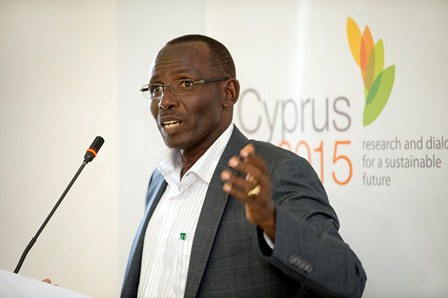Cyprus: Developing a reconciliation index

In 2011, Cyprus 2015, the Interpeace initiative in Cyprus, was chosen by the United Nations Development Programme – Action for Cooperation and Trust in Cyprus (UNDP-ACT) to design a monitoring and evaluation mechanism to regularly measure the state of reconciliation on the divided island. This ‘Reconciliation Index’ is intended to allow governmental and non-governmental institutions, the donor community and other relevant actors to assess the state of reconciliation in Cyprus, and better target efforts to consolidate peace. An effective reconciliation index is also a tool that could eventually be adapted and put into operation in other contexts as well.
A multidisciplinary approach
In line with this new project, the team organized a four-day workshop on Social Cohesion and Reconciliation in September. It brought together ten leading experts on reconciliation, both academics and practitioners, to discuss options to measure social cohesion. The presentations and discussions looked at the issue of reconciliation from different angles, including sociology, political science and psychology, and were enriched by lessons learned from experiences in Israel, Northern Ireland, Rwanda, Bosnia and South Africa.
Bernardo Arévalo de León, Deputy Director-General, Research and Development at Interpeace explains: “This workshop is a great opportunity for academics and practitioners to get together and share their knowledge. We have a great deal to learn from each other and can benefit from the different experiences. That is why I think it is excellent news that the participants agreed to collaborate in the future.”
Filling a gap in the later phase of post-conflict process
In order to prepare the ground for setting up a reconciliation index, the experts examined methods to measure the roles of actors at different stages of conflict and its transformation. They also discussed the conceptual aspect of reconciliation.
Dr Naasson Munyandamutsa, from Interpeace’s partner in Rwanda, the Institute of Research and Dialogue for Peace (IRDP), stressed the importance of regularly monitoring the state of reconciliation. “Rebuilding people’s trust in each other and in political structures, values and leadership is one of the main challenges in a post-conflict situation,” shares Naasson.
A public conference was also organized and took place within the United Nations buffer zone. It was attended by Greek- and Turkish-Cypriot officials, the United States Ambassador to Cyprus, civil society and media representatives, as well as most of the experts from the workshop.























